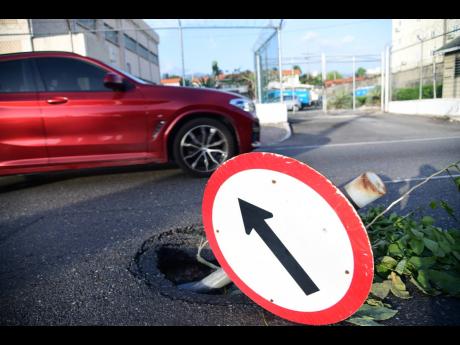Oran Hall | Don’t let natural disasters trump your financial plan
Hurricane Beryl has told us convincingly that even natural disasters that announce their coming and spare us some of their ferocity can smash a personal financial plan with grave consequences. Proper planning cannot stop natural disasters, but it...
Hurricane Beryl has told us convincingly that even natural disasters that announce their coming and spare us some of their ferocity can smash a personal financial plan with grave consequences.
Proper planning cannot stop natural disasters, but it can cushion the blows of the ill wind.
Like hurricanes and storms, earthquakes and floods often account for the loss of life, property, employment, and health, among other undesirable consequences. The financial losses caused can affect savings plans, investment plans, estate plans, retirement plans, and budgets, but relief can be had from an insurance programme that is relevant and adequate, as well as from a reserve of liquid financial resources.
These climate events are happening more frequently and with more severity, and their effects are not limited to business and families but extend to individuals as they disrupt life and finances. The extent of the disruption and the quality of the financial plan as well as the preparations made have a strong bearing on the speed and extent of the recovery.
Physical walls are not the only walls available for protection of self and family. Insurance is an important wall to protect family, self, and property. So life, health, property, and disability insurance are important.
Adequate life insurance is important to provide financial security for dependent relatives in the event of your demise. If term insurance is all that is affordable for the time being, let it be. Policies that have segregated funds can, in some circumstances, provide liquid funds for emergencies. By all means, keep policies up-to-date with the payment of premiums and with coverage. The liquidity it provides can be a life saver.
Property insurance cannot stop losses but can provide funds to restore or replace damaged property. It is an important wall. Make every effort to insure property at its current appraised value. Shop around and look beyond the premium rates. Read the fine print. Know what is covered and what is not and the level of deductibles. Take the same approach to the insurance of your contents.
To build an effective wall around your assets, first know what you own. Keep a current inventory of your assets, where they are and their replacement value, and adjust the coverage as necessary. This is critical to the claims process, an, in any event, makes it easier to account for them.
Put a wall around your estate plan to give protection to you and your loved ones. Know what you own. Update your documents and records such as wills, contracts, insurance policy contracts, passports, birth, marriage and death certificates, and business records. Ensure that they are in a safe place so they do not get damaged or lost. This can simplify and speed up the making of claims and transfer of assets, not necessarily now, but in the future.
Build and maintain a cash wall – an emergency fund – long before news of an approaching climate event. Remember that earthquakes, for example, come without warning. After an event, cash may be needed to buy food and other necessary items. You cannot be certain how easily you can access the financial system after such as event.
Stay in good financial shape to make you nimble in event of disruptions. In particular, keep your debt at a manageable level. Life still goes on, so you should be in a position to keep your financial commitments and be able to pay for temporary accommodation if the need arises.
Create an emergency kit in case you have to flee from your home if all your back-up plans fail. Include in it food, flashlights and batteries, medical supplies, and copies of important documents. Additionally, have a communication plan that every member of your household knows. Have an evacuation plan, too. You need to survive to live.
Your post-disaster recovery wall is vital. Know about the programmes and agencies that can help if the disaster really trumps all your plans and breaks down the walls you built to protect you against the assaults of the weather event.
Should you happen to suffer serious disabling injury, disability insurance may be able to be a hedge around you in terms of providing some income. You may have other claims due to damage to your dwelling or damage to or theft of its contents, for example. Get good advice and make every effort to understand how you make your claims. Settling your claims can put you back on your feet and help you maintain your financial plan.
A natural disaster should not make it necessary to encroach on the financial resources set aside for retirement. Nor should it cause any trespassing on the estate plan or on the investment portfolio. Insurance and an emergency fund are key elements of your personal financial plan in these circumstances and should assist you in steering away from incurring more debt.
Oran A. Hall, author of Understanding Investments and principal author of The Handbook of Personal Financial Planning, offers personal financial planning advice and counsel. finviser.jm@gmail.com

